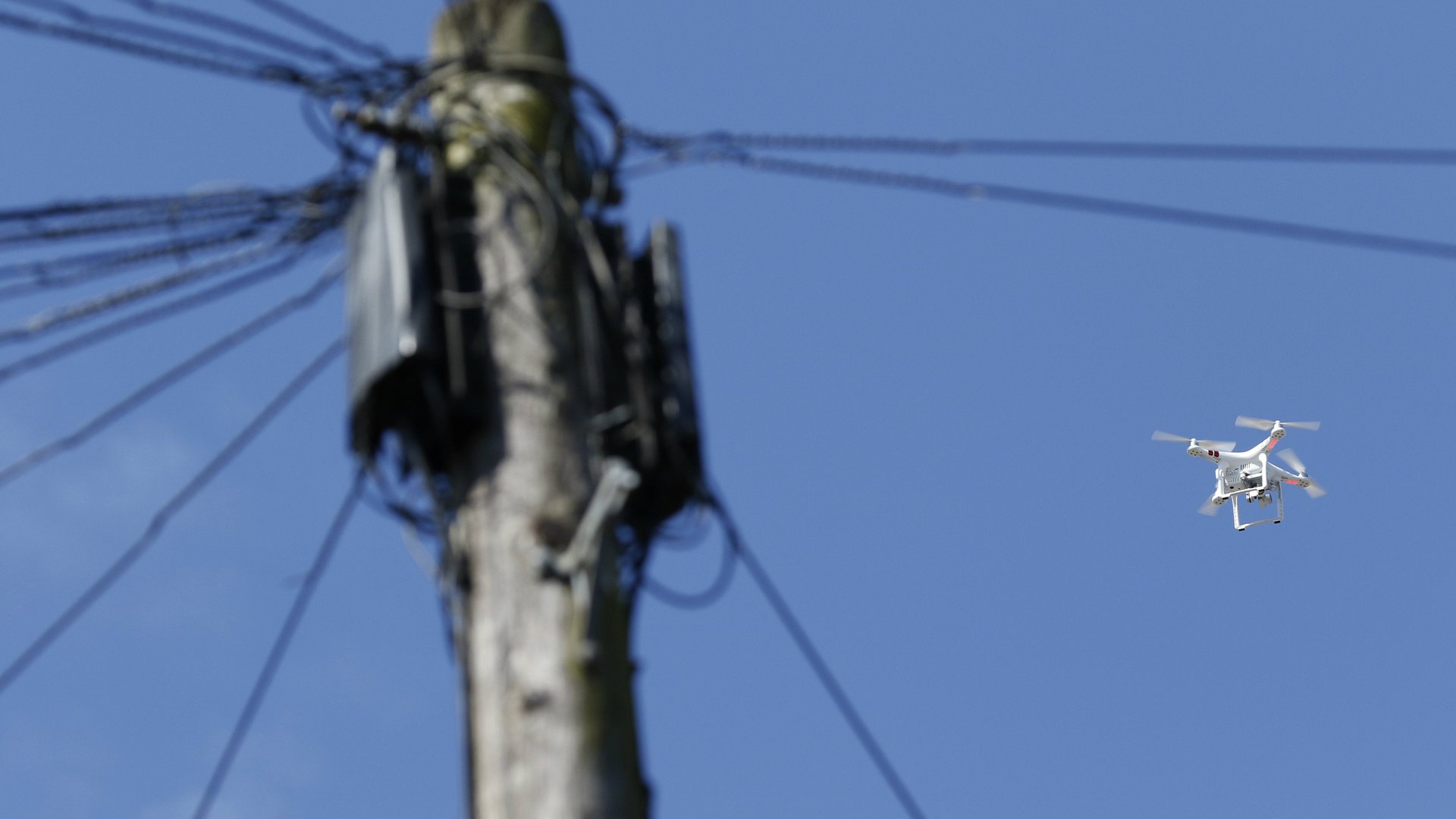It is now illegal to fly drones in Nigeria without government approval
Nigerian drone enthusiasts, like others across the world, have spent the last couple of months experimenting and exploring innovative ways to use drone technology. Mostly adopted by filmmakers, start-ups and enthusiastic hobbyists, there was also hope on the part of e-commerce companies that drones could be the answer to dealing with delivery challenges in the country, including frequent traffic congestion and a haphazard home address system.


Nigerian drone enthusiasts, like others across the world, have spent the last couple of months experimenting and exploring innovative ways to use drone technology. Mostly adopted by filmmakers, start-ups and enthusiastic hobbyists, there was also hope on the part of e-commerce companies that drones could be the answer to dealing with delivery challenges in the country, including frequent traffic congestion and a haphazard home address system.
That hope is fast fading, with an announcement by the Nigerian government yesterday (May 8) of an immediate ban on launching Remotely Piloted Aircraft (RUA) or Unmanned Aerial Vehicles (UAV) in its airspace without a permit from the Nigerian Civil Aviation Authority (NCAA) as well as the Office of the National Security Adviser (ONSA).
The government argues that the deployment of drones “without adequate security clearance” has led to “predictable safety concerns and security threats.” Security concerns in Nigeria remain high as the country battles with a deadly insurgency by the terrorist group Boko Haram that has left millions displaced and at least 20,000 dead in the north, as well as re-surging militancy in the south. While the government didn’t cite specific concerns in its statement, there are likely fears that Boko Haram and other groups might deploy drones for surveillance and strikes.
In a statement, the NCAA declared ”no government agency, organization or an individual will launch an RPA/UAV in the Nigerian airspace for any purpose whatsoever without obtaining requisite permit from the NCAA and ONSA.”
The battle over drone regulation is not new, with countries like Canada adopting robust guidelines preventing use of drones near areas with large groups of people and for unauthorized photography. The UK parliament has also called for compulsory registration of all civilian and commercial drones so as to manage “drone traffic and safety concerns.”
However, the worry lies in Nigeria’s cumbersome bureaucratic processes. Obtaining permits from such high level agencies for recreational and commercial use of drones could be a difficult, opaque and costly process.
Fears over the impact of drone regulation are not exclusive to Nigeria on the continent. A blanket ban on drones by Kenyan authorities in January last year (also for security reasons) dampened hopes of innovative and commercial uses as investors questioned funding projects such as air delivery in the face of government regulation.
The outlook is not all gloomy, however. Malawi is working with UNICEF to reduce the cost of HIV tests for babies using drones to transport test results, giving them quicker diagnosis and a better chance of survival. Rwanda is also exploring using drones for medical supplies and vaccine delivery to clinics in hard-to-reach rural areas.